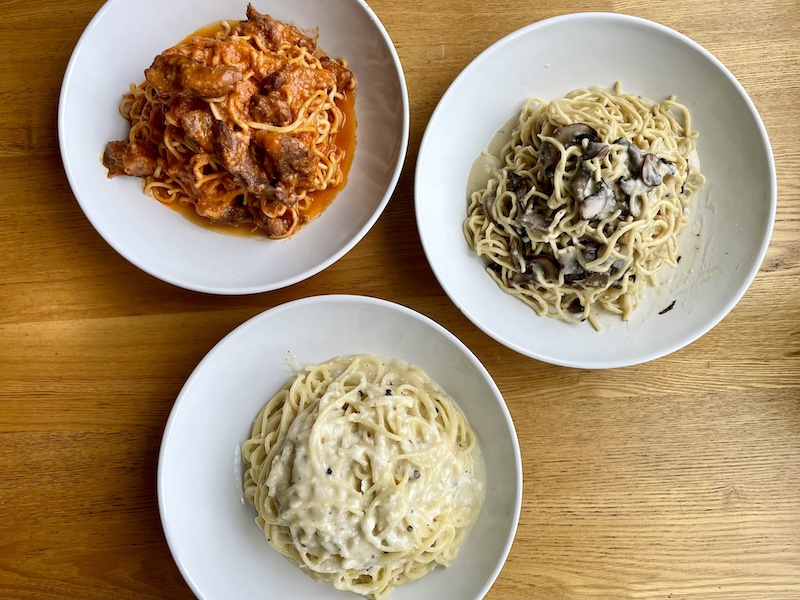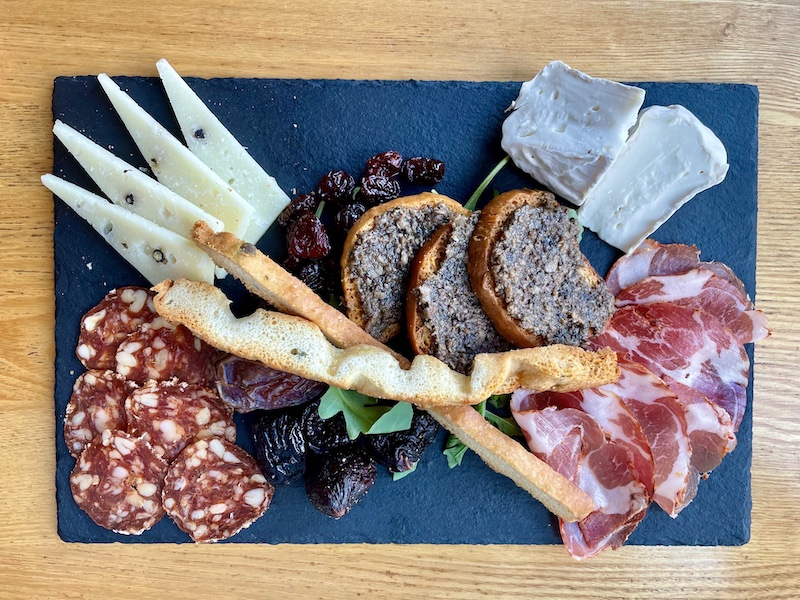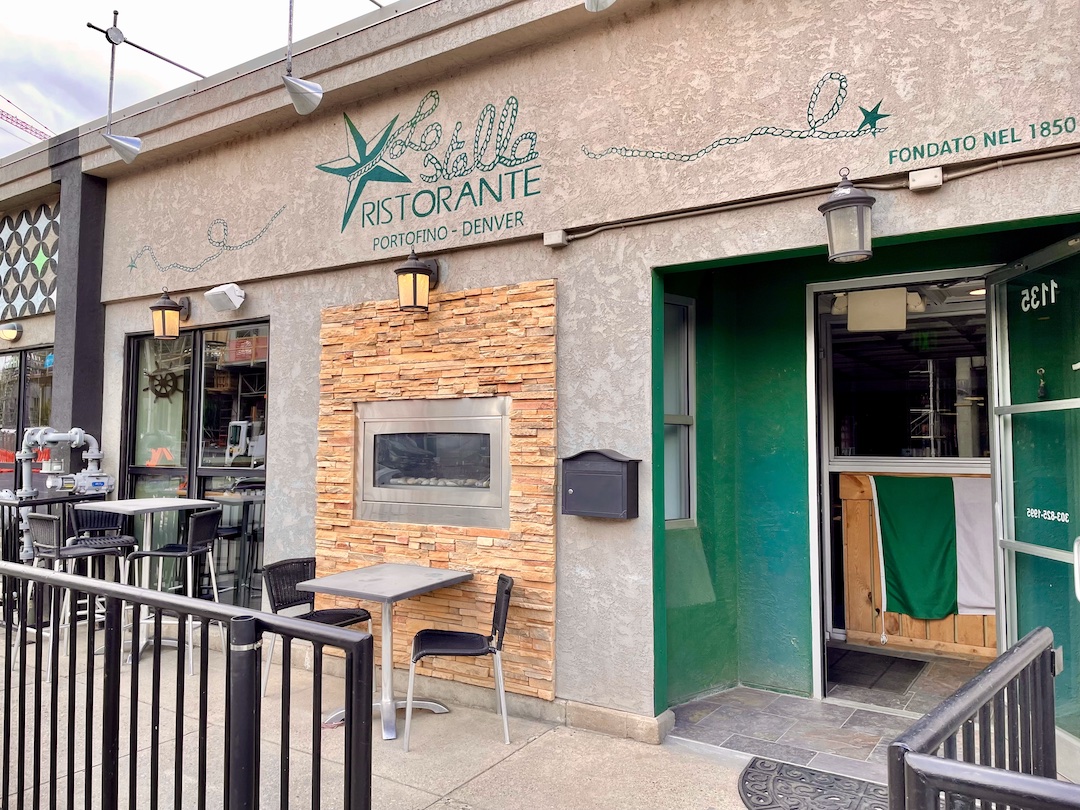Lo Stella Ristorante Combats Post-Pandemic Challenges With Fresh Pasta and Cheese Wheels
Dek – subheading Placeholder
You won’t find alfredo sauce or meatballs on the menu at Denver’s Lo Stella Ristorante. Instead, you’ll find authentic fish ravioli and scratch-made bolognese sauce, crafted from coveted family recipes passed down from kitchen to kitchen for nearly eight generations.
When Alessandro Polo arrived in the U.S. at just 21 years old, it meant leaving his family’s culinary legacy in the small Italian harbor town of Portofino to lay down new roots more than 5,000 miles away. He spent years making his name in kitchens across L.A. and New York, until he found himself in the burgeoning little city of Denver, Colorado, where curious diners were beginning to crave bigger, bolder, global flavors.
“I came to the U.S., and people used to think of spaghetti and meatballs and alfredo sauce [when they thought of Italian] — that has nothing to do with Italy. That’s from New Jersey,” Polo says. “But people in Denver were really curious. They weren’t judgemental.”

So while his family continued to operate the original 175-year-old Lo Stella Ristorante back home in Italy, Polo brought a small taste of Portofino to the heart of the Mile High. And Denver devoured it. (Lo Stella even got Mick Jagger’s formal stamp of approval back in 2019!)
For more than 8 years, Polo has prided himself on serving some of the most authentic flavors of Italy around, importing a good majority of his ingredients — including cured meats, gourmet cheeses, and specialty oils — directly from the Old Country. What he doesn’t have shipped in from Italy, he tries to source locally or make in-house, like his handmade pastas.
“I only sell what I would eat, and there’s nothing on the menu that I would not eat,” he says.

But in 2020, when the pandemic hit and restaurants everywhere were shutting their doors for good, Polo knew something had to give in order for Lo Stella to survive.
While many restaurants resorted to lowering ingredient quality and raising menu prices, Polo wanted to take a different approach — and he wanted to do it in a way that didn’t compromise the reputation for quality he’d worked so hard to establish.
“I had to make a change, even though it’s not really what I wanted,” Polo explained. “So, I looked at what we sell the most, I kept it, and I made it a little bit more special.”
He decided he would slim down the menu. The kitchen would shift gears to focus largely on its pasta offerings. Housemade pasta, while a labor of love, is cheaper than, say, a filet mignon or seasonal fish. It’s something he was good at and something Lo Stella patrons had come to love and expect.

“By focusing on the pasta, I was actually able to lower my prices a little bit,” he says. “I want to help people afford to go to the restaurant without lowering my quality. I refuse to do that. ”
If you stop by the restaurant today, you’ll notice the menu is a little skinnier. There are fewer apps, no more pizza, and a vacancy where there used to be multiple protein options like lamb, fish, and steak. But any lack of quantity is made up for in an abundance of quality, as the kitchen staff turns its attention to perfecting what is still on the menu. (Which does still include a few fan-favorite appetizers, like the salumi e formaggi platter and a rotating daily special that spotlights something other than pasta, like a chicken or fish.)
Polo hopes those offerings aren’t gone forever, but he’s made up for their absence in a Paste section that isn’t just untouched, it’s now packed with extra flavor and flair courtesy of a brand new menu feature: imported gourmet Italian cheese wheels.
Guests can taste Lo Stella’s cheese wheel experience in three brand new pasta plates: the Taglierini Al Cinghiale (handcrafted noodles and tender braised boar in a savory homemade red sauce); the Taglierini ai Funghi e Burro di Tartufo Bianco (handcrafted noodles and fresh porcini mushrooms in a white truffle butter sauce); or a classic Cacio e Pepe (roasted black pepper and cheese) — all tossed in hollowed wheels of Italy’s best Parmigiano Reggiano.
The use of cheese wheels is a cherished Italian technique used to impart an extra generous dimension of cheesy deliciousness on fresh pasta. Though it comes with its own costs — a hefty price tag and laborious maintenance — it’s worth every extra dollar and oil cloth if it means keeping a steady flow of happy patrons filling Lo Stella’s tables, Polo says.

Despite every hurdle the COVID-19 pandemic has hurled at the local dining scene, Polo is bringing comfort and joy to hungry Denver diners famished for something familiar one bite of pasta at a time.
So yes, while the Denver dining scene has changed a lot in the last two years, just like the change that brought Alessandro Polo 5,000 miles away from home, if you look hard enough change is really just a bright new opportunity waiting to be seized.
